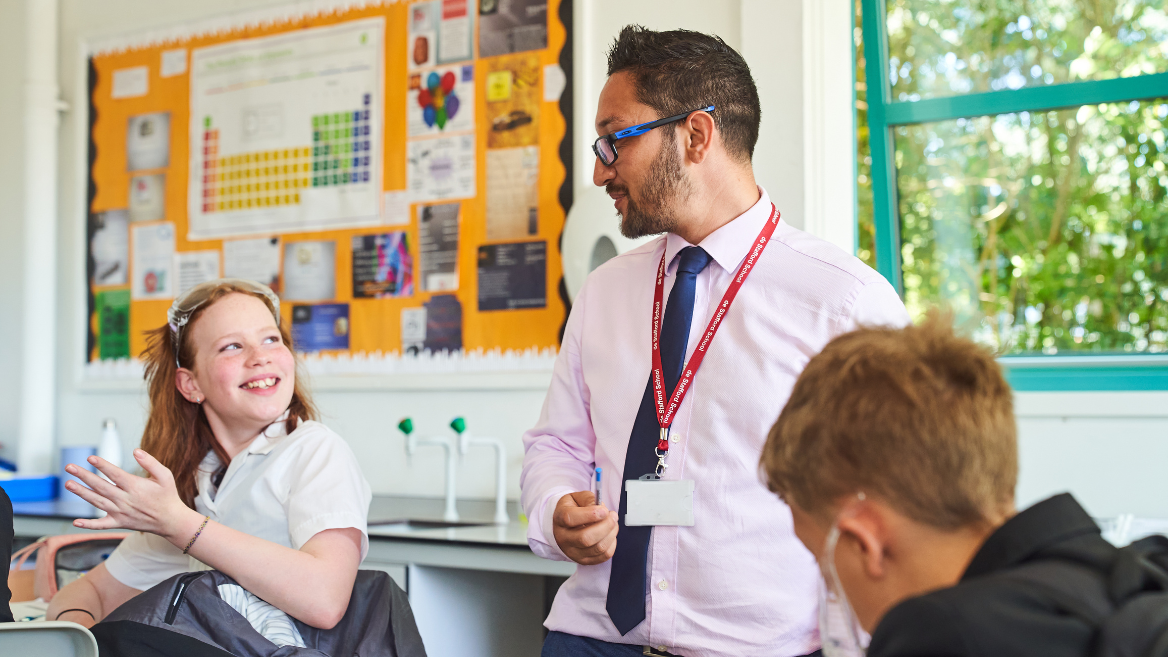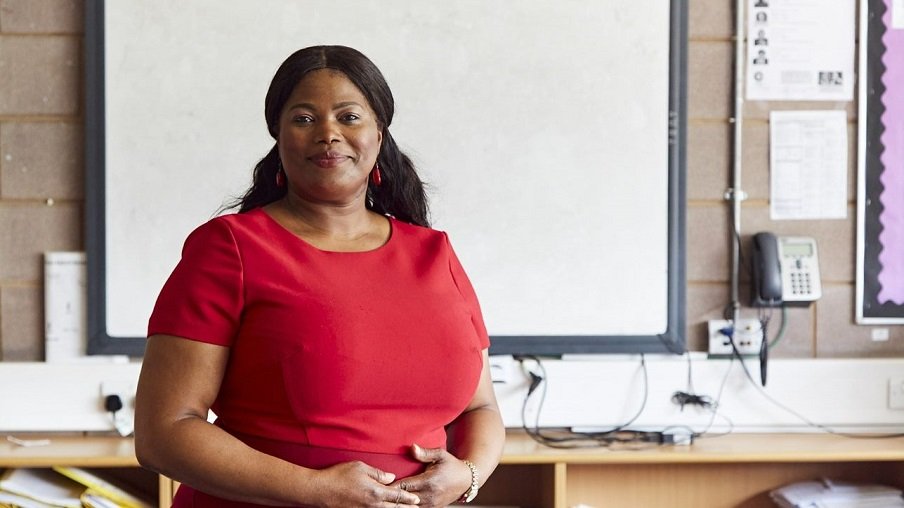When we ask people considering a second career in teaching about their biggest concerns, 48% say student behaviour. But do not despair!
Students are people, just like us, who have good days and bad days, and teachers are taught how to keep a class calm so students can learn.
Most of us probably didn’t want to be in school some of the time but we still enjoyed the lessons with respected teachers who knew how to keep you engaged and keen to learn.
You can become one of those teachers.
Good days
Good, consistent, relationships are vital to good student behaviour, so effective teachers take the time to make this happen. Students value it when a new teacher memorises as many names to as many faces as possible.
They are impressed (and sometimes scared!) and it helps good to establish your commitment to them, so if you need to discipline or praise them you can address them by name.
"Students value it when a new teacher memorises as many names to as many faces as possible."
It’s good to spend time with students outside the classroom, and you’ll be expected to do this in a variety of ways: break duty, sitting with them at lunch, pastoral/form duty and yes, detentions!
Showing your interested in them and their lives shows them you’re not ‘just’ a teacher trying to make them learn things. It builds relationships and helps foster trust, which then helps in creating good learning spaces.
We’ve seen some of the notes, cards and messages that students have sent to Now Teachers over the years, so we know the value teachers bring to their students lives.
"Thank you for being such a kind teacher to me in the last few months. I really appreciated your guidance through my learning, and I am extremely grateful as I’ve picked up some techniques to improve my work! I will miss you very much next year."
"Thank you for encouraging me to participate more and to increase my confidence. Your lessons were truly something I looked forward to and I feel so privileged to be a part of the class."
"Thank you for taking the time to mark my work, despite my often atrocious handwriting, and helping me to improve my French. Your lessons are very enjoyable, and my parents have noticed my French getting significantly better over the last few terms."
This is the difference of a teacher on a young person’s life.
"Behaviour management can seem scary at first because it’s the first obstacle trainees see - but the rewards are worthwhile."
The less good days…
Sometimes lessons do go wrong. A really good first lesson can lead to a not-so-good second lesson with no discernible reason. You might be surprised that the trickiest thing for all teachers is actually low-level disruption, rather than anything dramatic.
The first thing to say is that teacher training will teach you to deal with disruptive behaviour – talking, messing around and calling out – and how to prevent it from starting. It’s the skill that many teachers find hardest to master but it is simply part of the craft you’re learning.
One of our Now Teachers who started teaching in 2017, reflected:
“I created problems by forgiving sanctions at the end of the lesson. In Year Two you know to avoid such mistakes. Strike clinically, and good behaviour follows. In Year Three, your subconscious handles disruption, averting it as soon as a student turns to talk. I seemed to reach this stage midway through my second year. It is a blessing. It leaves you free to think about the teaching.”
What you will learn
One approach says that 'all behaviour is communication’, and that particularly challenging students might be going through something traumatic they can’t fully express. While this will only be the case for some students, it never means you have to accept these behaviours.
It’s your job to stop students from disrupting the whole class’s learning – just as it’s within your role to come alongside students and seek to understand them.
Behaviour expert Tom Bennet argues that whatever a student is experiencing, teachers should focus on rules, routines and boundaries, creating a calm, safe environment and, showing pupils they are valued.
Another thing Tom Bennet touches on is not needing to be 'friends' with young people. You can create strong, caring, professional relationships with young people without needing to allude to any form of 'friendship'.
You’ll also be trained to consider that just because students are quiet, doesn’t mean they are learning and that chatter doesn’t equal not learning. A teacher’s job is to find whatever behaviour approach works for them and within their school’s approach.
What all Now Teachers are clear on though is the important of clear rules consistently enforced. Zed Holmes, a career changing economics teacher and former banker, explains that students need to hear something from you that they can mantra:
Students find the number three quite magical:
1. Always follow teacher instructions.
2. When I’m speaking, you are not.
3. Every minute counts (if you’re wasting my time, I’m going to waste yours).
I also tell them that I have these rules because THEY are important. Not me.
Behaviour management can seem scary at first because it’s the first obstacle trainees see in order to teach and build the connections to their students - but the rewards are high and worthwhile.
---
Want to find out more?
Running the Room, Tom Bennett
Tom, government behaviour advisor and a teacher with over a decade’s experience, visited over 500 schools in the UK while writing this book, which is a staple of the teacher training curriculum. Hear Tom talk about the book and lots more.
The Action Hero Teacher, Karl C. Pupé
In this practical guide, Karl shares his wealth of knowledge gained by working with some of London’s most challenging students. Listen to Karl talks about his career and approach to behaviour.




